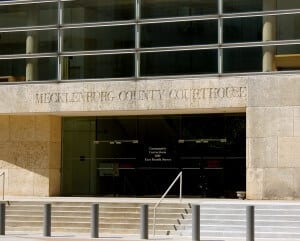Because DWI cases begins in District Court, we thought you might like to learn more about a District Court judge. So here is information about the judges who first hear your case.
So How Do You Become a District Court Judge in North Carolina?
Although many DUI attorneys try their cases in District Court, we usually prefer a jury trial. However, a DWI case always starts in District Court but can later be appealed to Superior Court. While District Court involves a judge only (bench trial), you get a jury of twelve (12) in Superior Court. As a result, we file legal Motions in District Court challenging parts of your arrest. For example, we may argue the officer did not have reasonable suspicion to stop or lacked probable cause to arrest. Furthermore, we learn more about your case through the officer’s testimony. So even if we lose our Motion, we may still get more insights for use in your jury trial. Of course, every case is different, and not every one has legal problems. In the end, our experience is that video makes or breaks cases.
 Judicial Districts
Judicial Districts
Every county seat of every county in North Carolina has a District court. However, other cities and towns may also have a court if authorized by the legislature. In addition, the legislature also sets how many district court judges with at least one judge per district. Not surprisingly, Mecklenburg County (District 26) has 21 district court judges, the largest in NC. Furthermore, Wake County (District 10) in Raleigh has 19 district court judges, a close second. In total, there are 270 district court judges in North Carolina.
District Court Judge Elections
While most people know judges are independent members of the judicial branch, there are different ways to become one. In South Carolina, judges are first nominated by the Governor and then voted on by the legislature. Moreover, once on the bench, they remain until retirement or removed for cause. However, in North Carolina, a District Court judge are elected officials. As a result, they must raise money and then campaign like any other politician. More importantly, they must answer and are accountable to their constituents every four years at re-election. While some prefer voters have more engagement, trial lawyers worry judges are not free to act independently.
 When there is an open district court position, the Governor must appoint someone. First, the local district’s Bar submits nominations of five lawyers who live in that district for the Governor’s consideration. While a Governor gives “due consideration” to these nominations, they can choose someone from the list or on their own. Once appointed, these judges remain on the bench until the next general election.
When there is an open district court position, the Governor must appoint someone. First, the local district’s Bar submits nominations of five lawyers who live in that district for the Governor’s consideration. While a Governor gives “due consideration” to these nominations, they can choose someone from the list or on their own. Once appointed, these judges remain on the bench until the next general election.
District Court Judge Requirements
There are only three (3) requirements to become a District Court judge. Must be licensed to practice law, reside in the district, and be less than 72 years old. However, if elected, the salary is $111,684 plus other benefits. In addition, you get a retirement pension, and after just 5 years on the bench, longevity pay. While a judge, you must commit your “full time to the duties of the office” and cannot practice law. Finally, a District Court judge cannot serve as an officer, director or manager of any business. Of course. Otherwise, conflicts of interest could come up to question a judge’s fairness.
District Court Judge Duties
Because of the different types of cases heard, a judge must be knowledgeable in many areas of law. In addition, they manage the docket, citizens, criminal defendants, district attorneys, police, defense attorneys, and court room personnel. As a result, time is short. So lawyers should prepare their cases and be ready to go. Otherwise, crowded dockets become even worse. After all, justice delayed is justice denied.
Criminal Cases
District courts cover all misdemeanor criminal charges and infractions (traffic tickets, possession of marijuana, etc). During 2014-15, more than 2 million cases were disposed of in district court. Of course, many cases did not go to court, but more than 300,000 cases did. In addition, District Court judges also hear first appearances in felony cases as well as conduct probable cause hearings. And finally, they hear all guilty pleas to make certain it is “freely and voluntarily given”. While this may seem obvious, it is critical to make sure a guilty plea is proper. Otherwise, you could miss important Constitutional rights and set the standard too low. In the end, the rights of one becomes the rights of everyone.
Civil Cases
District Court hears all civil actions for amounts in controversy is up to $25,000. Consequently, most civil lawsuits resolve in District Court. In addition to civil claims, judges hear annulment, divorce, property division, alimony, child support, and child custody cases. Fortunately, given the substantial number of cases filed every year, most are settled by agreement or at mediation. Otherwise, the system would breakdown and times for final adjudication would take even longer. Frankly, it is amazing how effective and efficient our District Court system is. So next time you hear someone complaining, set them straight.
Moving Cases Through the System
As you can see, a District Court judge has a lot of responsibilities and duties. So to make justice work, everyone involved has to do their part. Rather than complain about the crowded docket, lawyers should do their part to move the docket along. Consequently, show up on time and be ready to present your case. Be brief, stay on topic, focus on the relevant facts, and don’t waste the court’s time. Otherwise, you become part of the problem and not the solution. In the end, everyone has the exact same goal. And that is to move their cases and close files. After all, that is what clients want and expect. Don’t let them down.
